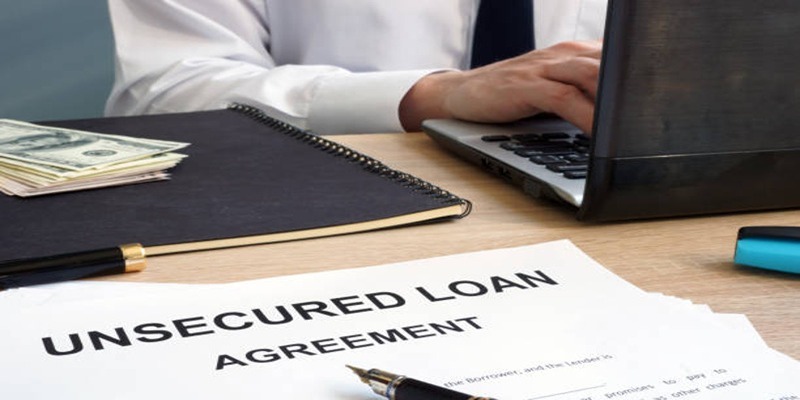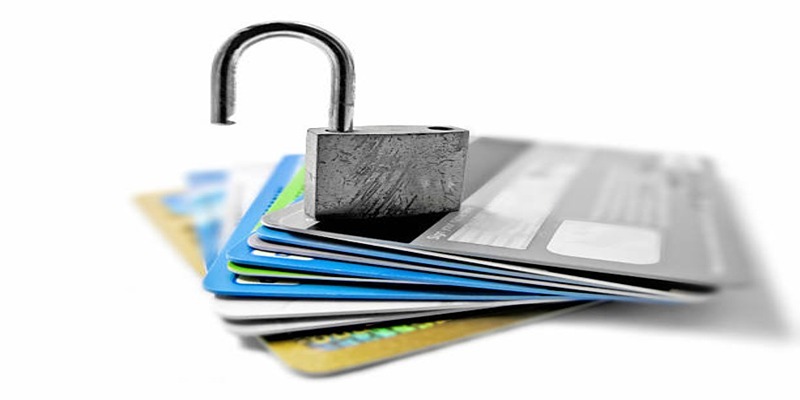In the world of personal finance, credit cards have become an integral part of daily transactions and financial management. Unsecured credit cards are a popular choice among consumers seeking flexibility and convenience in their spending. Unlike secured credit cards, unsecured credit cards do not require collateral, making them accessible to a broader range of individuals. This article will delve into the intricacies of unsecured credit cards, exploring their definition, features, advantages, and potential drawbacks.
Defining Unsecured Credit Cards:

An unsecured credit card is a valuable financial tool that provides cardholders with the flexibility to make purchases up to a pre-defined credit limit without the need for collateral. In contrast to secured credit cards, which are backed by a cash deposit, unsecured credit cards are dependent solely on the borrower's creditworthiness. Lenders carefully evaluate the applicant's credit history, income, and various other financial factors to assess eligibility and establish the appropriate credit limit for the cardholder. This method allows individuals to build their credit and financial responsibility while enjoying the convenience and benefits of a credit card.
Key Features of Unsecured Credit Cards:
No Collateral Requirement:
One of the defining features of unsecured credit cards is the absence of a collateral requirement. This makes them more accessible to individuals who may not have the funds to secure a secured credit card.
Credit Limit:
Every unsecured credit card comes with a predetermined credit limit, which represents the maximum amount the cardholder can borrow. The credit limit is based on the individual's creditworthiness and financial profile.
Interest Rates:
Unsecured credit cards often come with variable interest rates, influenced by market conditions and the borrower's credit score. Cardholders must understand the interest rates associated with their card and manage their balances accordingly to avoid excessive interest charges.
Revolving Credit:
Unsecured credit cards typically offer a revolving credit structure, allowing cardholders to carry a balance from month to month. However, this convenience can lead to accumulating interest charges if the balance is not paid in full by the due date.
Advantages of Unsecured Credit Cards:
Convenience and Flexibility:
Unsecured credit cards provide the convenience of making purchases without the need for upfront collateral. This flexibility makes them an attractive option for everyday transactions, online shopping, and emergencies. Additionally, they offer the convenience of not having to carry large sums of cash and provide a layer of security in case of theft or loss.
Building Credit History:
Responsible use of an unsecured credit card can contribute to building a positive credit history. Timely payments and maintaining a low credit utilization ratio can improve credit scores over time, opening doors to better financial opportunities. Moreover, a strong credit history can lead to more favorable terms on future loans and credit products.
Rewards and Perks:
Many unsecured credit cards come with rewards programs, cash back offers, and various perks. Cardholders can earn points or cash back on eligible purchases, providing additional incentives for using the card responsibly. Furthermore, some cards offer additional perks such as travel insurance, extended warranties, and purchase protection, enhancing the overall value for cardholders.
Drawbacks and Considerations of Unsecured Credit Cards:

Interest Charges:
Perhaps one of the most significant drawbacks of unsecured credit cards is the potential for high-interest charges. These cards often come with variable interest rates, which can escalate based on market conditions and the borrower's credit score. Failure to pay the balance in full by the due date can result in accruing interest, leading to increased overall debt.
Credit Limit Constraints:
While unsecured credit cards offer flexibility, the assigned credit limit may not always align with the cardholder's financial needs. Some individuals may find the limit restrictive, limiting their ability to make substantial purchases or handle unforeseen expenses. This constraint can be a challenge for those who require higher credit limits for specific financial goals.
Creditworthiness Requirements:
Approval for an unsecured credit card heavily depends on the applicant's creditworthiness. Individuals with poor or limited credit history may encounter difficulties in obtaining an unsecured card or may be offered higher interest rates. This can create barriers for those looking to establish or rebuild credit.
Annual Fees and Other Charges:
Unsecured credit cards may come with annual fees and various charges, such as late payment fees and over-limit fees. These additional costs can impact the overall cost of using the card and may catch cardholders off guard if not carefully considered. Some individuals may prefer no-annual-fee alternatives to avoid these extra expenses.
Potential for Debt Accumulation:
The revolving credit structure of unsecured cards allows cardholders to carry a balance from month to month. While this feature offers flexibility, it also poses the risk of accumulating debt if the cardholder consistently carries high balances. The ease of making minimum payments can lead to a cycle of debt that may become challenging to break.
Impact on Credit Score:
Mismanagement of an unsecured credit card, such as late payments or high credit utilization, can hurt the cardholder's credit score. A lower credit score can affect the ability to qualify for other financial products and may result in higher interest rates for future loans or credit cards.
No Asset Protection:
Unlike secured credit cards, which require a cash deposit as collateral, unsecured credit cards do not offer asset protection. In the event of financial difficulties or default, the lender does not have a specific asset to recoup losses. This lack of collateral can lead to more aggressive debt collection efforts by the creditor.
Limited Accessibility for Some Individuals:
Unsecured credit cards may not be easily accessible to individuals with a limited credit history or those who have faced financial challenges in the past. This exclusivity can make it difficult for certain individuals to establish or rebuild credit using unsecured credit cards.
Conclusion:
Unsecured credit cards play a vital role in the modern financial landscape, offering convenience and flexibility to consumers. Understanding the key features, advantages, and potential drawbacks is essential for making informed decisions about using these financial tools. By using unsecured credit cards responsibly and managing credit wisely, individuals can build a positive credit history and leverage the benefits of these widely used financial instruments.




